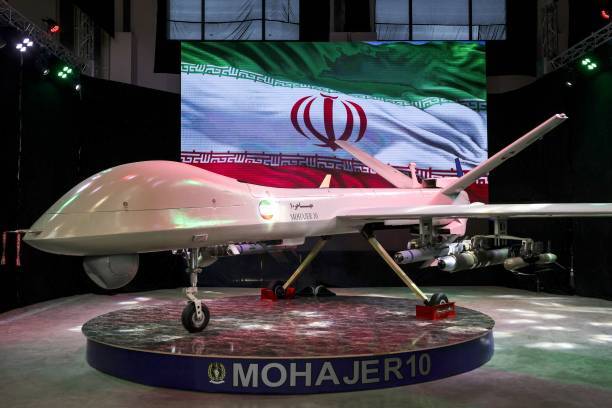Health and Human Services Secretary Robert Kennedy Jr. has issued a broad ban of “artificial colors by the end of his term in 2029 or face government intervention.” While the new directive was focused toward the biggest companies in the food industry like PepsiCo North America, Kraft Heinz, General Mills, Tyson Foods, WK Kellogg, and JM Smucker (whom RFK, Jr. had meetings with the CEOs as well as representatives from the Consumer Brands Association), it is clear that all food manufactures and processors are expected to follow the edict.
It is reported that RFK, Jr. told the executives that “removing artificial dyes is an urgent priority,” but he left what happens if the companies fail to comply intentionally vague. This ominous, open-ended threat was enough to make the markets react as stock for the food giants all dipped at a sharper rate than the S&P 500 in general (which was on a downward vector) pointing to investors’ concern about how the new directive will affect the bottom-line. (But to be fair, whenever the government gets involved to this extent, investors tend to get nervous, at least until they have a better idea of what the actual fallout will be.)
How will the “removal of food dyes” policy affect the bottom line for food companies? Ultimately,, it is impossible to fully evaluate the question without knowing the ramificationsof non-compliance. After all, from a financial standpoint, it may be better to take the governmental penalty hit than a sales loss if the food is suddenly visually unappealing. People eat with their eyes, a,nd the U.S. market i,s not accustom,ed to seeing food that hasn’t been “dressed up” a bit to better meet an expected look. Add into the equation that there are surprisingly few “natural” food dyes that are as effective in coloring food items, and most are sourced in ways that are, shall we say, less than appetizing if you know the source.
This is a moment in time, however, where financial concerns may be overcome by both the true and the perceived health concerns that the dyes may present. The “Make America Healthy Again” movement has been picking up steam for years, well before it got its shiny new branding to fall inline with the Trump 2.0 administration. The American consumer has never been more conscious of what goes into their food and what the effects could be. This could put the food companies at more considerable risk of losses if the public believed that they were happy to risk your children’s health to pocket a little extra coin per unit sold. Especially given that companies like PepsiCo, Kraft Heinz, General Mills, WK Kellogg, and JM Smucker have different formulations, without many of the food dyes, that they have been selling in Europe for decades.
Further evidence of the moment we find ourselves in (regarding food colors and safety) is the fact that many states did not wait for the RFK, Jr. ultimatum to begin taking action. California has outlawed Red 40, Yellow 5, Yellow 6, Blue 1, and Green 3 in school meals. West Virginia is moving forward with bipartisan legislation that would ban a wide range of dyes and additives from all food products sold in the state. Removing harmful additives from our food supply seems to be one of the few truly bipartisan issues in our current political chaos.
As impactful as removing food dyes from our diets will be, RFK Jr. has his sights set on a much bigger target, the GRAS system. That is the FDA’s “Generally Recognized As Safe” program that gives food manufacturers great latitude in using ingredients based on claims that an ingredient has been safe in other applications as scientific grounds to claim without the FDA officially, independently approving the ingredient for use in the manner the food company is intending. But that is a different topic for another day; just keep it on your radar.
The question now isn’t, “does the American consumer want healthier options,” that has been made clear, and the answer is a resounding YES. The question is how those same consumers will react when they get what they are asking for. Will steak and ground beef sales hold steady when all the beef looks grey instead of red? Will they be as drawn to that banana pudding that is a natural off-white color instead of the yellow we all think of when we think banana? Well, we certainly can get used to these things if we have enough time. The US consumer, however, is notoriously impatient and very vocal during this kind of transition. So expect grumbling from the public and a bumpy ride for the food companies (in fact, some of the smaller companies may not survive to change.
Will MAHA succeed? It all depends on your definition of success, but time will tell.

"A well regulated Militia, being necessary to the security of a free State, the right of the people to keep and bear Arms, shall not be infringed."
Often thought of as being the right through which all other rights are preserved, the Second Amendment allows all citizens to have weapons (inparticular fire arms) so that they may protect themselves, their family, their neighbors, and yes, even their property (sorry leftist) from those who would do harm or illegally deprive them of life, liberty, or their private property without due process. This self-defense principle was intended to apply to both common criminals and overreaching governments.
Since its inclusion in the Bill of Rights, the Second Amendment has been under attack by the political left, perhaps more so than any other guaranteed right. In the efforts to discourage the self-reliance that firearm ownership can provide, everything from the placement of commas to the definition of Militia has been debated and intentionally misinterpreted. Surprisingly, the placement of commas really does matter a great deal in this case, but to understand why, you have to understand what a preamble is and why preambles were commonly used at the time of the framing of the Constitution.
When I write (or say) the word preamble, you most likely think of the statement at the very beginning of the U.S. Constitution, which starts with the often quoted phrase "We the People." And why not? It is the most famous example of a preamble. But ask any lawyer, and they are likely to tell you that preambles remain in common use in certain areas of the practice of law even today. So, what is a preamble? It is a brief statement meant to clarify the meaning of or explain why the following item(s) were deemed necessary. Looking back at the example of the Preamble of the U.S. Constitution, when the Framers wrote it, they were explaining who the Constitution was written for and what the intent of the document is. (You know... to form a more perfect union, and so on.) The thing about a preamble is that while it is a proclamation about what is to follow, it is technically not a functional part of what follows. That is why you will hear political speeches reference parts of the preamble, but no SCOTUS decision will ever be based on the preamble. (Well, that may change with legal nincompoops like Ketanji Brown Jackson now sitting on the High Court, but as long as the majority of the Justices understand this basic legal concept, it should never happen.) In the case of the Second Amendment, the statement "A well regulated Militia, being necessary to the security of a free State," is in fact a preamble to the actual right to be listed as constitutionally protected, "the right of the people to keep and bear Arms, shall not be infringed." The placement of the commas in the first section of this very short amendment makes it clear that the defence of the nation is the rationale for arming the citizenry, it is the reason why the right must be protected, not an extension of the right itself.
Many choose to ignore that the statement about a militia is a preamble and should not be considered a functional part of the amendment. For those people, it is essential to remind them of the mindset of the framers and how the Militia was defined at the time of the framing. The Founders were very suspicious of a standing army (or more to the point, the power a government would have with a standing army) and didn't want to establish one, so they preferred the idea of a citizen militia and therefore used that wording. For the people of that day, the Militia included any man or boy (and in some cases, women) reasonably capable of using a firearm. In other words, the citizens of the nation, not a formal military, as some leftists would have you believe. "Well regulated" was more of a reference to the upkeep of the weapons than training in tactics, a fact that is documented in letters written by some of the framers at the time. (Ask any responsible gun owner, and they will be happy to tell you about the commitment that is involved in keeping your firearms in optimal working order.) The citizens at the time relied on their firearms to keep themselves alive through hunting or self-defence. They needed their guns to reliably work, to be... well-regulated.
Another factor to consider when arguments against personal gun ownership are being made is the deterrence from invasion that an armed citizenry can provide. Even after the formation of the U.S. Armed Forces, the fact that a population of citizens could mount a prolonged resistance makes would-be hostile actors think twice about invading. A sentiment that has been conveyed since World War II in the disputed but nonetheless often shared phrase "You cannot invade mainland United States, there would be a rifle behind every blade of grass," attributed to then, Japan's Commander-in-Chief of the Combined Fleet, Admiral Isoroku Yamamoto. Regardless of whether Admiral Yamamoto said those exact words, something similar, or never said anything like it, the sentiment remains a legitimate military concern for any force that would consider occupation.
The truth is that the political left hates the idea of an armed citizenry because, like I already pointed out, gun ownership promotes self-reliance. For the political left to acquire and maintain power, they need everyone to be dependent on them. There is no room for the self-reliant in the future they wish to build because those people will, sooner or later, realize that they don't need an all-powerful, centralized government to control their lives. And make no mistake, when they chip away at the right of personal gun ownership, it is not about reasonable limitations or "common sense" reforms, it is about limiting your freedoms when they are the only ones with guns at their disposal.
Clip from the Feb. 6th Tapp into the Truth Rumble Live Stream featuring Kenneth Abramowitz, author of The Multifront War: Defending America From Political Islam, China, Russia, Pandemics, and Racial Strife and founder of Save The West, a website dedicated to saving Western Civilization.
Watch the full video at:

U.S. forces have launched military operations with Ecuador against “designated terrorist organizations” inside the South American country, Southern Command said Tuesday (3/3/2026).
The military released no details on the operations but suggested in a statement that it was an extension of strikes carried out by the Trump administration against suspected drug trafficking organizations in the region.
Three U.S. service members have been killed in action during combat operations against Iran, U.S. Central Command officials announced Sunday. Five more have been listed as “seriously wounded.” Several other troops “sustained minor shrapnel injuries and concussions — and are in the process of being returned to duty,” according to the CENTCOM release.

I recently wrote about how Iran has effectively captured Venezuela as a proxy state in an article / op-ed that you can find at BizPac Review or here at locals. Iran has been "gifted" a large amount of land in Venezuela; It has entered into a 20-year "partnership agreement," and it has built (and is operating) a military drone factory at a Venezuelan military base, plus providing training on how to use the multiple attack UAVs that are being built there. While this is a reason to be concerned, things escalated a bit over the weekend and have been significantly downplayed by the legacy media to the point that next to no one is even talking about it.
This past Saturday (January 11th, 2025), during Venezuela's "International Anti-Fascist Festival" in Caracas, the socialist dictator and Iranian lapdog Nicolás Maduro threatened to invade Puerto Rico, saying, "Just as in the north they have a colonization agenda, we have a liberation agenda." and then adding, "The freedom of Puerto Rico is pending, and we will achieve it with Brazilian troops." No matter how serious you may take this threat - sabar rattling by someone looking to position himself in the eyes of the rest of South America, impress his Iranian, Russian, and Chinese "friends," just a big mouth who had a little too much to drink before taking the stage - whatever you may think, it s a clear, open threat against an American territory. (Kudos by the way to Jenniffer González-Colón, the current governor of Puerto Rico, who had the sense to skip reaching out to the (technically-still-in-charge) Biden/Haris White House and directly wrote Trump asking the in-coming administration to "to respond to the dictator's threat."
Meanwhile, in Western Europe, China is looking to increase its influence in Germany. Chinese officials are working on a deal that would see Chinese automakers move into German automotive factories slated for closure and are particularly interested in Volkswagen's sites. Germany has previously been greatly dependent on Russia for energy (and reports vary as to the reality of how much that has actually changed since the Ukraine conflict), but taking the word of the German government about it, Germany can ill afford to trade that out the Russian influence for Chinese influence on what is (at least for now) the largest economy in the European Union.
The pieces continue to be moved around the board by the Axis. And while the CCP and Iran lay the groundwork for what both believe will eventually end with them individually dominating the world, the Biden/Harris administration (either by incompetence or by design) continues to make it easier for what's left of the Free World to fall. January 20th, 2025, can't get here fast enough. Say what you will about Donald Trump, but at least he is not losing a game of Chutes & Ladders when the adversaries of the United States are playing 3-D chess.

The Islamic Republic of Iran has been a disruptive force in the Middle East since the Islamic Revolution of 1979. Since the overthrow of Mohammad Reza Pahlavi, a.k.a. the last Shah of Iran, Khomeini and his Mullahs set Iran on a course of destruction for both the modern Persian society that existed there at the time and their neighbors who did not subscribe to the Twelver Ja'afari Shia Islam imposed by Khomeini. This remains the path the theocratic Iranian regime follows today. Sunni Muslims, Christians, Jews, and anyone who exemplifies the concepts of Western Civilization remain a target of Iran or their proxies, either by open attack or terrorism.
In recent years, Iran has decided to extend its influence beyond the Middle East, where it orchestrated attacks on Israel and Saudi Arabia and financed terror in Western Europe and piracy throughout the region. This expansion was born out of Russia's war with Ukraine. Russia found itself unable or unwilling to end the conflict quickly. Once the U.S. and most of Europe started sending "aid" and sanctioning Russia, Putin found himself in need of help from friends and frenemies alike. A new Axis (Russia, China, North Korea, Iran, and Venezuela) was formed as a result. An Axis that was, at least on the surface, allying with Russia against the U.S., NATO, and the Western World. Iran had been a long-standing ally of Russia, so it made sense that it would be part of this new Axis.
A global financial partnership to end the U.S. dollar as the world reserve currency, known as the BRIC nation bloc (named for its founding members: Brazil, Russia, India, and China) was formed in 2006, had its first summit in 2009, and South Africa joined the group in 2010 leading to an official name change to BRICS. However, this group of countries was largely unsuccessful and generally ignored by the world's financial powers as it was widely seen as a not-so-veiled effort by China to become the world's dominant economy. That changed in 2024 when China and Russia (two founding members) reached out to other nations that had issues with the various disastrous foreign policies enacted by the Biden/Haris administration, and a unified global financial force was born by expanding the group to include Egypt, Ethiopia, Indonesia, Saudi Arabia, the United Arab Emirates, and Iran (not to mention a long list of countries who have expressed interest in joining: Algeria, Bangladesh, Belarus, Bolivia, Cuba, Kazakhstan, Malaysia, Nigeria, Thailand, Turkey, Uganda, Uzbekistan, and Vietnam.) You will notice that some of these countries have been enemies for a very long time and, despite joining this group, remain adversarial, even hostile toward one another. Only the bungling of Joe Biden on the international stage brought some of these people together to work against the interests of the United States. So, "Let's Go Brandon!"
It makes sense that Russia would want Iran to be a part of everything they are doing. As I pointed out before, they have been long-time allies due in large part to the amount of oil and lack of refining capacity in Iran. There are other reasons, but the sweetheart deal they worked out so long ago to refine oil for Iran made Russia an indispensable partner in the eyes of Mullahs and both sides rich. However, since the 1980s, there is another reason why Iran has become a valued ally of Russia. What most people don't know, despite the best efforts of people like myself who have been telling anyone who would listen for years now, is that Iran has been developing drone technology since the 1980s and is one of, if not the world leader in drone production (especially military drone production). Much of Russia's drone capabilities is a direct result of Iran.
That takes us to the latest threat that Iran now poses. The other members of the Axis have developed an appreciation of the Iranian drone. So much so that Venezuela opened its borders to the Iranian proxy group Hezbollah, not only allowing them to operate within Venezuela but to actually "oversee" elections in some regions of the country since about 2017. Then, in 2022, Venezuela provided Iran with 1,000,000 hectares of "farmland for cultivation." Nicolás Maduro visited Tehran that year, where he signed a 20-year partnership agreement "on cooperation with Iran in various fields." It seems clear that what Iran has been "cultivating" is a new poxy state similar to Syria before the fall of the Bashar al-Assad regime, only this time, it's within striking distance of the United States. The IDF even warned everyone in March of 2024 that Iran was arming Venezuela with weapons that were "very capable of hitting the U.S."
Maria Villarroel, writing for the Latin Times, revealed in her January 11, 2025, article that Iran had built a drone development factory and was training Venezuelan military personnel at the El Libertador air base in Venezuela. One of the wide range of unmanned aerial vehicles (UAV) being produced there is the ZAMORA V-1, used for one-way attack missions. (And by the way, Iran has indicated that it intends to sell UAVs to other countries in the region, a practice that could - and most likely will - destabilize the geopolitical landscape in Latin America.)
Iran developed its drone technology and is still developing its nuclear capabilities, making it extremely dangerous to Israel, all the Sunni Muslims, Christians, and anyone who does not share their belief in the Twelver Ja'afari Shia tradition within its reach. Iran has strengthened the so-called Red-Green Axis, as it serves its purpose of advancing their belief in the eventual worldwide caliphate. And Iran has harnessed Venezuela as a proxy under the ruthless and illegitimate rule of Nicolás Maduro. All of this happened under the watch of Joe Biden, who, instead of working to prevent it, actually helped Iran to pay for it all. That includes an additional 10 billion dollars in sanctions relief issued three days after the 2024 Presidential election. So, thanks Joe, and one more time on your way out the door, "Let's Go Brandon!"














